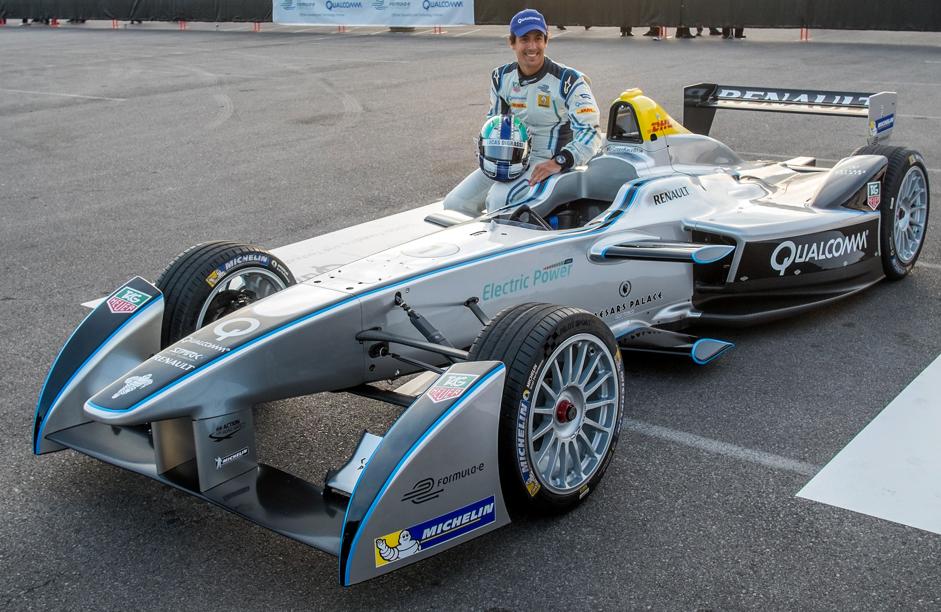Formula 1 racing is undergoing a transformation as it embraces the next generation of technology, sustainability, and competitive spirit. The "Next Gen F1" refers to the advancements and changes that will shape the future of this iconic motorsport. From new regulations to the introduction of hybrid technologies, the evolution of Formula 1 is not just about speed but also about responsibility towards the environment and the fan experience. This article will delve into what makes the next generation of Formula 1 so exciting, the challenges it faces, and the innovations that are set to redefine the sport.
The world of motorsport is constantly evolving, and Formula 1 is no exception. The introduction of new technologies, sustainability initiatives, and a focus on enhancing the overall spectator experience are at the forefront of the changes taking place. With the growing emphasis on environmental impact, the Next Gen F1 is not only about racing cars but also about racing towards a greener future.
In this comprehensive guide, we will explore various aspects of the Next Gen F1, including its historical context, key innovations, regulatory changes, and what fans can expect in the coming years. Whether you are a seasoned fan or new to the sport, this article provides valuable insights into the future of Formula 1.
Table of Contents
- History of Formula 1 Evolution
- Key Innovations in Next Gen F1
- Sustainability Initiatives in Formula 1
- New Regulations for the Next Generation
- Enhancing Fan Experience
- Challenges Facing Next Gen F1
- The Future of Formula 1
- Conclusion
History of Formula 1 Evolution
The roots of Formula 1 trace back to the early 20th century, where racing began as a simple competition of speed. Over the decades, the sport has undergone significant changes, from the introduction of safety regulations to advancements in engineering. The 21st century has marked a pivotal shift in focus towards technology and sustainability.
Key Innovations in Next Gen F1
The Next Gen F1 is set to introduce several groundbreaking innovations that will enhance performance and safety:
- Hybrid Power Units: The transition to hybrid power units is a significant step towards sustainable racing.
- Aerodynamic Improvements: New designs aimed at reducing drag and increasing downforce will be crucial.
- Data Analytics: Enhanced data collection and analytics will help teams optimize their strategies.
- Active Suspension Systems: This technology allows for real-time adjustments to improve handling and performance.
Sustainability Initiatives in Formula 1
As the world becomes more environmentally conscious, Formula 1 is taking steps to minimize its carbon footprint:
- Net Zero Carbon by 2030: F1 has committed to becoming net zero carbon by 2030, implementing various sustainability measures.
- Biofuels and Sustainable Fuels: The use of biofuels in racing is being explored to reduce emissions.
- Recycling and Waste Management: Improved recycling programs are being implemented at racetracks worldwide.
New Regulations for the Next Generation
The FIA (Fédération Internationale de l'Automobile) is continuously updating regulations to ensure fair and competitive racing:
- Cost Cap Regulations: Introduced to level the playing field, allowing smaller teams to compete more effectively.
- Technical Regulations: New technical rules aim to improve safety and reduce the performance gap between teams.
Enhancing Fan Experience
Formula 1 is focusing on improving fan engagement through various initiatives:
- Digital Platforms: Enhanced digital experiences for fans, including app updates and live-streaming options.
- Fan Zones: Interactive fan areas at events to engage spectators and create a community atmosphere.
- Virtual Reality Experiences: Allowing fans to experience the thrill of racing through VR technology.
Challenges Facing Next Gen F1
While the future of Formula 1 looks promising, it does not come without challenges:
- Balancing Tradition with Innovation: Maintaining the essence of F1 while embracing new technologies can be a delicate balance.
- Financial Sustainability: Smaller teams often struggle to keep up with the financial demands of the sport.
- Adapting to Regulations: Continuous changes in regulations can create uncertainty for teams and drivers.
The Future of Formula 1
The future of Formula 1 promises to be thrilling, with a focus on sustainability, technology, and fan engagement. As the sport continues to evolve, fans can expect to see exciting races, innovative teams, and a commitment to reducing environmental impact.
Conclusion
In summary, the Next Gen F1 represents a significant evolution in the world of motorsport, blending speed with sustainability and technology. As the sport progresses, it will be crucial for teams, regulators, and fans to come together to ensure a bright future for Formula 1. We invite you to share your thoughts on the Next Gen F1 in the comments below, and don't forget to explore more articles on our site for the latest updates in the world of motorsport!
Thank you for joining us on this journey into the future of Formula 1. We hope you found this article informative and engaging. Please come back for more exciting content and discussions about the world of motorsports!
You Might Also Like
Exploring The Life And Legacy Of Paul Walker's Brother, Cody WalkerKathy White Autopsy: Unveiling The Truth Behind The Mystery
True Blood Sam: The Enigmatic Shape-shifter Of Bon Temps
Best Single Serve Coffee Maker: Your Ultimate Guide To Brewing Perfection
Kara Killmer: A Deep Dive Into The Life And Career Of The Talented Actress
Article Recommendations
- David Nehdar The Man Behind The Success Of Lacey Chabert
- Best Vegamovies Anime In Hindi
- Sophie Rain Erome The Rising Star In The Entertainment Industry


